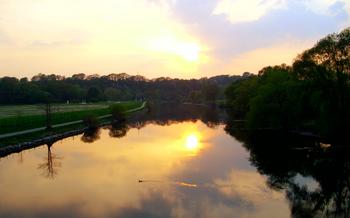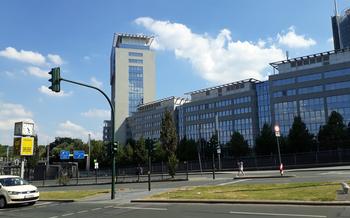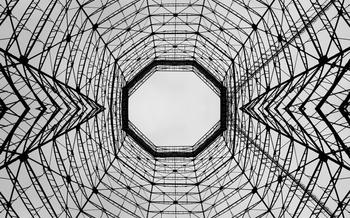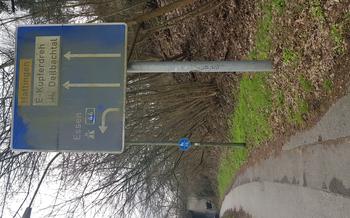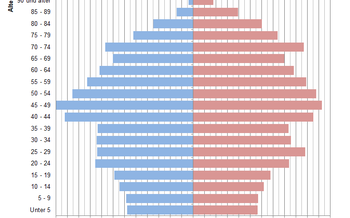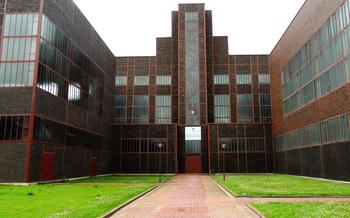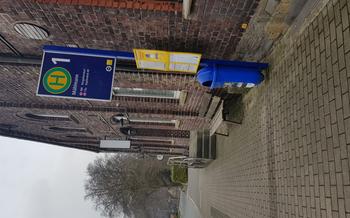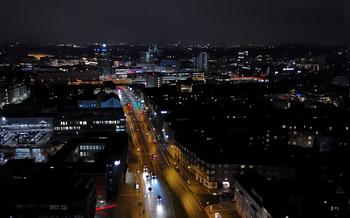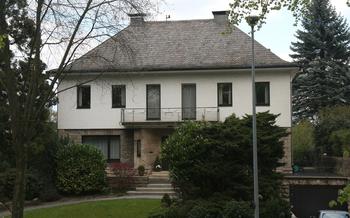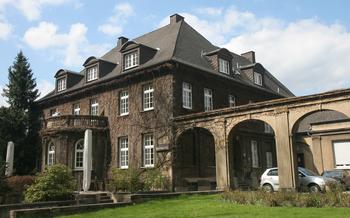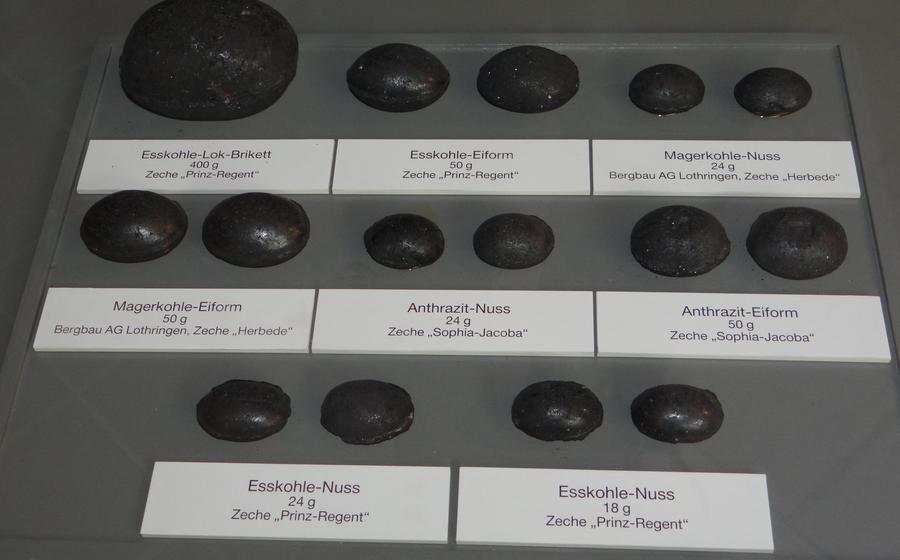
German Mining Museum (Deutsches Bergbau Museum)
- The German Mining Museum (Deutsches Bergbau Museum)
- Exhibitions and Displays
- Mining Technology and Machinery
- Hands-On Activities and Workshops
- Research and Education
- Special Events and Programs
- Gift Shop and Café
- Accessibility and Facilities
- Photography and Videography
- Sustainability and Environmental Impact
- Local Area and Attractions
- Visitor Reviews and Feedback
- Tips for Planning Your Visit
- Insider Tip: Discover the Secret Underground Mine
The German Mining Museum (Deutsches Bergbau Museum)
A Journey into the Depths of Mining History
In the heart of the historic city of Bochum, nestled amidst the remnants of its industrial heritage, lies the German Mining Museum, a treasure trove of knowledge and stories that unveil the captivating world of mining. This remarkable institution, founded in 1930, has become a beacon of mining history, technology, and culture, attracting visitors from around the globe.
Location and Accessibility:
The German Mining Museum is conveniently situated in the heart of Bochum, a city renowned for its rich mining legacy. Visitors can easily reach the museum by public transportation, with the Bochum Hauptbahnhof (central train station) just a short walk away. Alternatively, those traveling by car can take advantage of the ample parking facilities available near the museum.
Opening Hours and Admission:
The museum welcomes visitors from Tuesday to Sunday, with extended hours on weekends and during school holidays. Admission fees vary depending on the type of ticket and any special exhibitions or events. Visitors can purchase tickets online or at the museum's ticket counter.
Guided Tours and Visitor Programs:
To enhance the visitor experience, the German Mining Museum offers a range of guided tours and visitor programs. These tours provide expert insights into the museum's collection, history, and mining technology. Visitors can choose from general tours that provide an overview of the museum, to thematic tours that focus on specific aspects of mining, such as coal mining or industrial mining. Additionally, the museum hosts regular workshops, lectures, and special events throughout the year, allowing visitors to engage with the museum's experts and delve deeper into the world of mining.
Exhibitions and Displays
The German Mining Museum boasts a diverse range of permanent and temporary exhibitions that delve into the fascinating world of mining. Permanent exhibits showcase the history and development of mining technology, from ancient tools to modern machinery. Visitors can marvel at the impressive collection of mining machinery and equipment, including massive mining locomotives, coal cutters, and drilling rigs. Interactive exhibits and hands-on activities bring the mining experience to life, allowing visitors to operate replica mining equipment and learn about the challenges faced by miners. Thematic sections dedicated to coal mining, metal mining, and industrial mining provide a comprehensive overview of the industry's impact on society and the environment.
Mining Technology and Machinery
The German Mining Museum showcases an impressive collection of mining technology and machinery, providing visitors with an in-depth look at the equipment and processes used in mining operations throughout history. Among the highlights are:
-
Historical Mining Tools and Equipment: Discover a wide range of historical mining tools, from simple hand tools used by early miners to more specialized equipment such as picks, shovels, and lamps. These artifacts offer a tangible connection to the past and showcase the ingenuity and resourcefulness of miners from centuries ago.
-
Large-Scale Machinery: Witness the awe-inspiring scale of large-scale mining machinery, including mining locomotives, coal cutters, and conveyor belts. These massive machines played a crucial role in the industrialization of mining, significantly increasing efficiency and productivity. Interactive displays and demonstrations bring these machines to life, allowing visitors to understand their operation and significance.
-
Demonstrations and Interactive Displays: The museum offers live demonstrations and interactive exhibits that provide hands-on experiences and insights into mining technology. Visitors can operate replicas of mining equipment, simulate the process of extracting coal, and learn about the challenges and dangers faced by miners. These interactive displays make the museum's collection come alive and create a memorable learning experience.
-
The Role of Technology in the Development of Mining: Explore the profound impact of technology on the development of mining. From the introduction of steam-powered engines to the mechanization of mining processes, technology has revolutionized the industry. The museum highlights key innovations and technological advancements that have shaped mining practices over time, showcasing their role in increasing safety, efficiency, and productivity.
Hands-On Activities and Workshops
The German Mining Museum offers a range of hands-on activities and workshops that provide visitors with a unique and engaging way to learn about mining history and technology. These activities are designed to appeal to visitors of all ages and interests, and they offer a great opportunity to get up close and personal with the museum's exhibits.
One of the most popular hands-on activities is the chance to try out mining equipment. Visitors can use picks, shovels, and other tools to dig for coal, and they can even operate a small mining locomotive. These activities give visitors a sense of what it was like to be a miner, and they help to bring the museum's exhibits to life.
The museum also offers a variety of workshops and educational programs for children and adults. These workshops cover a wide range of topics, from the history of mining to the science of geology. The workshops are led by experienced educators, and they provide a great opportunity for visitors to learn more about mining in a fun and interactive way.
For visitors who want a more in-depth experience, the museum offers guided tours that focus on hands-on activities. These tours are led by experienced guides who can provide visitors with a wealth of information about the museum's exhibits and the history of mining. The tours are designed to be interactive and engaging, and they provide visitors with a chance to ask questions and get a behind-the-scenes look at the museum's collection.
The German Mining Museum's hands-on activities and workshops are a great way to learn about mining history and technology in a fun and engaging way. These activities are suitable for visitors of all ages, and they offer a unique and memorable experience for everyone who visits the museum.
Research and Education
The German Mining Museum is not only a place of preservation and exhibition but also an active research institution. Its team of experts conducts research on various aspects of mining history, technology, and culture. The museum collaborates with universities and other research institutions to advance the understanding of mining and its impact on society.
The museum's research activities include historical studies, archaeological excavations, and technical investigations. Researchers use a variety of sources, including archival documents, oral histories, and physical artifacts, to reconstruct the past and shed light on the development of mining technologies and practices.
The museum's research findings are disseminated through publications, conferences, and exhibitions. The museum also offers educational programs and resources for students and educators, including guided tours, workshops, and online resources.
The museum's commitment to research and education is essential for preserving and promoting the legacy of mining in Germany. By fostering a deeper understanding of mining history and technology, the museum helps to ensure that the contributions of miners and the mining industry are not forgotten.
Special Events and Programs
The German Mining Museum offers a range of regular and special events and programs to engage visitors and promote mining culture. These events provide opportunities for visitors to learn more about mining history, technology, and its impact on society.
Regular events include lectures, workshops, and exhibitions that delve into various aspects of mining. Experts and researchers share their knowledge on mining-related topics, such as mining techniques, mining disasters, and the social and cultural impact of mining.
Special events, such as mining festivals and themed weekends, are held throughout the year to celebrate mining heritage and traditions. These events often feature live demonstrations of mining equipment, reenactments of mining scenes, and hands-on activities for visitors.
The museum also organizes educational programs for children and adults, including guided tours, workshops, and interactive exhibitions. These programs aim to spark curiosity and interest in mining and its legacy.
To find out about upcoming events and programs, visitors can check the museum's website, social media channels, or sign up for the museum's newsletter. Attending these events is a great way to immerse oneself in the world of mining and gain a deeper understanding of its history, technology, and cultural significance.
Gift Shop and Café
The German Mining Museum offers a range of amenities to enhance visitors' experiences, including a well-stocked gift shop and a cozy café. The gift shop is a treasure trove of mining-related souvenirs, from books and postcards to replicas of mining equipment and jewelry inspired by mining motifs. Visitors can also find a selection of local handicrafts and regional specialties, making it an ideal place to pick up unique gifts for friends and family.
The museum's café provides a welcoming space for visitors to relax and refuel after exploring the exhibitions. The menu features a variety of hot and cold drinks, as well as a selection of snacks and light meals. Visitors can enjoy their refreshments indoors or outdoors on the café's terrace, which offers stunning views of the surrounding park.
These amenities contribute to the overall visitor experience by providing opportunities for visitors to browse for souvenirs, take a break, and learn more about the mining heritage of the region. Whether you're looking for a unique gift or simply want to unwind with a cup of coffee, the German Mining Museum's gift shop and café are worth a visit.
Accessibility and Facilities
The German Mining Museum is committed to making its exhibitions and programs accessible to all visitors, regardless of their abilities or disabilities. The museum features a variety of accessibility features, including ramps, elevators, and audio guides. Wheelchairs and restrooms for visitors with disabilities are also available.
Visitors with specific accessibility needs are encouraged to contact the museum in advance to make arrangements. The museum can provide additional assistance, such as arranging for a guided tour that is tailored to the needs of visitors with disabilities.
The museum's commitment to accessibility extends beyond its physical facilities. The museum's website is designed to be accessible to visitors with visual impairments, and the museum offers a variety of programs and resources for visitors with learning disabilities.
By providing a variety of accessibility features and services, the German Mining Museum ensures that all visitors can have a positive and enjoyable experience. Whether you are a wheelchair user, have a visual impairment, or have any other accessibility needs, you can be sure that you will be welcomed and accommodated at the museum.
Here are some tips for planning your visit if you have specific accessibility needs:
- Contact the museum in advance to make arrangements for assistance.
- Arrive early to avoid crowds.
- Let the museum staff know if you need any help navigating the museum.
- Take advantage of the museum's accessible features, such as ramps, elevators, and audio guides.
- Relax and enjoy your visit!
Photography and Videography
The German Mining Museum welcomes visitors to capture their experiences through photography and videography. However, to ensure the preservation of the museum's artifacts and the privacy of other visitors, certain guidelines must be followed.
Photography and Videography Guidelines
-
Still Photography: Visitors are permitted to take photographs for personal use only. The use of tripods, selfie sticks, and flash photography is prohibited in some areas to protect delicate exhibits.
-
Videography: Non-commercial videography is allowed with prior permission from the museum administration. Professional photography and videography for commercial purposes require a permit and may incur a fee.
Tips for Great Photos and Videos
-
Lighting: Take advantage of the natural light from the museum's windows to capture vibrant colors and details. Avoid using flash, as it can create harsh shadows and reflections.
-
Composition: Experiment with different angles and perspectives to create visually appealing shots. Look for unique details and interesting juxtapositions to tell a story through your images.
-
Editing: Use photo editing software to enhance your photos and videos, but be mindful of maintaining the integrity and authenticity of the museum's exhibits.
Sharing Your Content
-
Social Media: Share your photos and videos on social media using the hashtag #MiningMuseumBochum to connect with other visitors and enthusiasts.
-
Museum Website: Submit your best shots to the museum's website or social media pages for a chance to be featured.
Respecting Copyright Laws
- Copyright: Remember that the museum holds the copyright to all images and videos taken on its premises. Always ask permission before using any museum-owned content for commercial purposes.
By following these guidelines, you can capture and share your memories of the German Mining Museum while respecting the museum's policies and the rights of other visitors.
Sustainability and Environmental Impact
The German Mining Museum is committed to sustainability and environmental protection. The museum has implemented various initiatives to reduce its carbon footprint, such as using renewable energy sources, installing energy-efficient lighting and heating systems, and reducing waste and water consumption. Visitors can contribute to sustainability during their visit by using public transportation or walking to the museum, bringing their own reusable water bottles, and recycling their waste. Promoting responsible tourism is important for the museum, as it helps to protect the environment and preserve the region's cultural heritage for future generations.
Local Area and Attractions
Bochum, the city that hosts the German Mining Museum, is brimming with cultural and historical treasures waiting to be explored. As you venture beyond the museum's walls, immerse yourself in the city's vibrant tapestry, where industrial heritage blends seamlessly with modern-day attractions.
A short stroll from the museum, marvel at the Jahrhunderthalle, a former coal mine turned into a stunning event venue. Its striking architecture and unique history make it a symbol of Bochum's transformation from an industrial powerhouse to a vibrant cultural hub.
For a shopping spree or a leisurely stroll, head to the Ruhr Park, one of the largest shopping malls in Germany. With over 150 stores, restaurants, and a cinema, it offers a delightful mix of retail therapy and entertainment.
Bochum's location in the heart of the Ruhr Valley, a region renowned for its rich industrial past, makes it an ideal base for exploring the region's heritage. Discover the Zollverein Coal Mine Industrial Complex, a UNESCO World Heritage Site, or visit the Ruhr Museum in Essen to delve deeper into the region's fascinating history.
To fully immerse yourself in the local culture, be sure to sample the region's culinary delights. Indulge in a hearty meal at a traditional German restaurant, savor the flavors of international cuisine, or sip on a refreshing beer at one of the many breweries in the area.
Whether you seek cultural enrichment, historical exploration, or simply a fun-filled day out, Bochum and its surroundings offer an array of experiences to satisfy every traveler's curiosity.
Visitor Reviews and Feedback
The German Mining Museum is consistently praised by visitors for its engaging exhibits, knowledgeable staff, and interactive experiences. Visitors have noted the museum's ability to transport them back in time and provide a comprehensive understanding of the history and significance of mining in Germany. The museum's efforts to preserve and promote mining heritage have also been widely appreciated, with many visitors commenting on the importance of keeping this unique part of German culture alive.
The museum actively seeks feedback from its visitors to improve its exhibitions and programs. Visitor feedback is collected through surveys, comment cards, and online reviews. The museum staff carefully considers all feedback and uses it to make improvements that enhance the visitor experience. Visitors' suggestions have led to the development of new exhibits, the expansion of educational programs, and the improvement of accessibility features.
Sharing your thoughts and experiences with the museum is a valuable way to contribute to its ongoing development. Your feedback helps the museum understand what visitors enjoy and what areas can be improved. By sharing your thoughts, you can help ensure that the German Mining Museum continues to provide a world-class experience for all visitors.
Tips for Planning Your Visit
To make the most of your visit to the German Mining Museum, a little planning goes a long way. Here are some tips to ensure a smooth and enjoyable experience:
Advance Planning:
- Book Your Tickets Online: Purchase tickets online to avoid queues, especially during peak tourist season.
- Choose the Right Time to Visit: Avoid weekends and public holidays for a less crowded experience. If possible, visit during the week or early in the morning.
What to Wear and Bring:
- Dress Comfortably: Wear comfortable shoes as you will be doing a lot of walking.
- Consider the Weather: Bochum's weather can be unpredictable, so dress in layers and bring a raincoat or umbrella.
- Bring Essentials: Remember your camera, a bottle of water, and a snack if planning a longer visit.
Visiting with Children:
- Interactive Exhibits: Take advantage of the museum's interactive exhibits, which are perfect for keeping kids entertained and engaged.
- Hands-On Activities: Check the museum's website for hands-on activities and workshops suitable for children. Book in advance to avoid disappointment.
- Family-Friendly Events: Look out for special family-friendly events and programs organized by the museum.
Avoiding Crowds:
- Off-Peak Hours: Visit during the museum's quieter hours, typically in the morning or late afternoon.
- Explore Lesser-Known Areas: Venture beyond the main exhibition halls to discover hidden gems and lesser-known exhibits that are often less crowded.
- Take Advantage of Guided Tours: Guided tours can help you avoid crowds and get the most out of your visit by providing exclusive insights and access to restricted areas.
Insider Tip: Discover the Secret Underground Mine
Venture beyond the main exhibitions and uncover a hidden gem at the German Mining Museum: the secret underground mine. This unique attraction allows visitors to experience the thrill of descending into a real mine shaft and exploring the dark, mysterious tunnels that were once used by miners. Equipped with helmets and headlamps, you'll follow a guide through narrow passages, past sparkling minerals, and learn about the challenges and dangers faced by miners in the past. The underground mine tour is a truly immersive experience that provides a glimpse into the hidden world beneath the museum and offers a deeper understanding of the history of mining in Germany.
